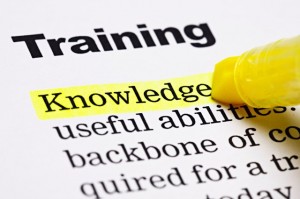y Rose O. Sherman, EdD, RN, FAAN
“Knowledge gaps can be hard to pinpoint and diagnose at first because many work processes today are so intangible and complex.” – David DeLong
 A nurse manager recently described to me her leadership dilemma. For years, she had been fortunate to a have a cadre of very experienced staff with longevity on the unit. Over the past year, many of these nurses had either retired or left to seek positions that were less physically demanding. In there place, she has nurses with far less experience. “Don’t get me wrong“, she told me, “they are great in many ways but I now have a unit that has gone from being a well oiled machine to one that is often chaotic”. There is much discussion about what will happen when the large cadre of baby boomer nurses retire in the next few years, but less discussion about the years of organizational, clinical and leadership knowledge that they will take with them.
A nurse manager recently described to me her leadership dilemma. For years, she had been fortunate to a have a cadre of very experienced staff with longevity on the unit. Over the past year, many of these nurses had either retired or left to seek positions that were less physically demanding. In there place, she has nurses with far less experience. “Don’t get me wrong“, she told me, “they are great in many ways but I now have a unit that has gone from being a well oiled machine to one that is often chaotic”. There is much discussion about what will happen when the large cadre of baby boomer nurses retire in the next few years, but less discussion about the years of organizational, clinical and leadership knowledge that they will take with them.
The Risks
Through time, nurses gain tremendous experiential knowledge much of which is often neither documented nor shared. When nurses retire or resign, the knowledge, skills and judgment that they possess leaves with them. Without a strategic plan to evaluate the pending retirements of their nursing workforce and transfer their knowledge they possess, organizations may find themselves vulnerable to increased errors, loss of efficiency and a decline in patient care. In recent research that I conducted on the pending perioperative nursing shortage, the loss of the “perioperative nurse specialty brain trust” was cited as a major concern by perioperative nurse leaders.
Transferring Knowledge
The transfer of knowledge in an organization involves capturing and distributing the knowledge of experienced nurses to insure that what they know will be available for future use. It is important to consider what knowledge may need to be transferred. Based on a model suggested by David Delong, there are four specific types of knowledge that nurses possess about their work. These include
1. Human Knowledge
Human knowledge is what individuals know or know how to do. For nurses, this is the specialty knowledge and expertise that they develop over time and use in their work.
2. Social Knowledge
Social knowledge also known as social capital is developed by working with groups and teams of people over a period of time. Relationships require trust and collaboration. Social knowledge is critical in nursing where so much of care is a team effort. Understanding who to call and how to work with effectively with an interdisciplinary team increases efficiency and effectiveness within organizations.
3. Cultural Knowledge
Cultural knowledge is understanding an organization’s cultural norms and how things get done. In nursing, the transmission of cultural knowledge is important so that work units work cohesively and help nurses new to the organization in their transition. When teams of staff leave at the same time, cultural knowledge can be lost and units become unstable.
4. Structured Knowledge
Knowledge about an organization’s systems, processes, tools and routines is considered structured knowledge. It is explicit and rules based and is an organizational resource. Attentiveness in nursing to the transfer of structured knowledge is critical because health care systems are complex and highly regulated.
Strategies
The nursing shortage is expected to begin in the next five years as large numbers of Baby Boomer nurses begin to retire. They will be replaced by much younger, less experienced nurses. The knowledge transfer process needs to begin now to avoid knowledge loss. Some best practices include: 1) structured mentoring experiences, 2) job overlap, 3) establishment of communities of practice and knowledge and 4) the utilization of technology for knowledge capture and storage.
David Delong in his book Lost Knowledge recommends story telling as a way to encourage nurse to share information about how things get done and to pass on the history, culture and values of the organization. A key to success in knowledge transfer regardless of the strategy selected is to enlist staff in recognizing the importance of preserving organizational knowledge and their contributions to creating a professional legacy.
Read to Lead
Delong, DW. (2004). Lost Knowledge: Confronting the threat of an aging workforce. Oxford University Press
Sherman, R. (2008). Lost knowledge: Confronting the challenges of an aging workforce. Nurse Leader, 6(5), 45-47.
© emergingrnleader.com 2015


 LinkedIn
LinkedIn Instagram
Instagram